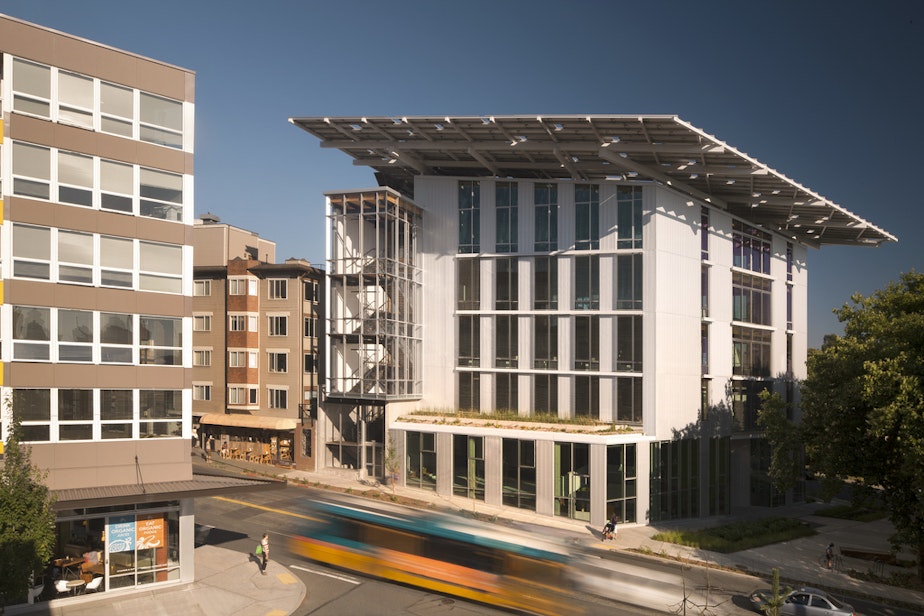Another climate foe: energy-guzzling buildings

Buildings are the fastest-growing source of carbon emissions in Washington state, according to Gov. Jay Inslee’s office.
Legislation backed by Inslee aims to turn that around, not just by strengthening the building codes that govern new construction, but by requiring some old buildings to clean up their acts as well.
"We’re basically taking those buildings that are using the most energy right now and asking them to invest in deep energy retrofits to meet a performance standard," Democratic Rep. Beth Doglio of Olympia told the House Finance Committee about the green-buildings bill she co-sponsored.
Moving around, in cars and trucks, causes most of the carbon pollution that is overheating our world. But staying put, in the buildings we live and work in, is next on the list in Washington state.
Wasting less energy as we heat and power those buildings could take a big bite out of our collective carbon footprint and help stave off catastrophic climate change.
Sponsored
It might even lower healthcare costs, according to Trent House, a lobbyist who testified on the bill on behalf of Providence Health and Services.
“I didn’t know this until this bill, but energy accounts for about 51 percent of a facility’s cost for a hospital, and hospitals in particular are very energy intensive," House said.
The bill, SHB 1257, would require big, energy-guzzling buildings like hospitals to make deep retrofits that would really cut back their energy waste. It would also give out $75 million in subsidies, distributed through utilities, to help building owners incorporate energy-saving technologies.
The bill passed the finance committee on Wednesday.
If it becomes law in its current form, most large buildings would have until 2028 to make the improvements.
Sponsored
The conservative Building Industry Alliance of Washington opposed the bill, saying it would drive up costs.
Environmental supporters said energy efficiency is the cheapest energy resource and that building owners would quickly earn back any upfront costs through lower utility bills.
The bill would also let local governments require more-efficient new homes than the state’s energy code requires.
Other provisions include requiring all new buildings with parking spaces to provide electric-vehicle charging stations, similar to a proposal Seattle Mayor Jenny Durkan made this month.




